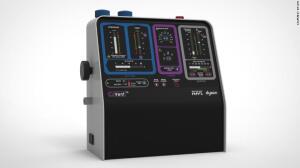por
John R. Fischer, Senior Reporter | March 26, 2020

Upon request from the U.K. government, Dyson is designing 10,000 new ventilators to help hospitals treat COVID-19 patients.
British tech giant Dyson is developing 10,000 ventilators for the U.K.’s National Health Service to treat patients hospitalized with coronavirus, and also plans to distribute an additional 5,000 ventilators to combat the virus internationally.
U.K. Prime Minister Boris Johnson requested last week for the company to help hospitals combat the pandemic by producing ventilators, with a design drawn up over 10 days by company founder James Dyson. His device is called the CoVent and is specifically intended to support coronavirus patients. The ventilators will be ready by April,
reports Fast Company.
"A ventilator supports a patient who is no longer able to maintain their own airways, but sadly there is currently a significant shortage, both in the U.K. and other countries around the world," said James Dyson in a letter to his employees, adding that "this new device can be manufactured quickly, efficiently and at volume."
Like Dyson, which is known for its household appliances such as vacuum cleaners and hair dryers, many non-healthcare tech companies are doing their part to help providers treat patients who test positive for coronavirus, more formally known as COVID-19.
Automaker Ford has
forged partnerships with GE and 3M to produce ventilators and respirators, while Tesla has partnered with Medtronic to produce ventilators. Apple supplier Foxconn has
retrofitted production lines to produce masks to protect hospital staff from exposure. Another is Gtech, a British manufacturer of cordless vacuum cleaners and garden power tools. It is working to produce ventilators and has already submitted two examples to the government for assessment, according to CNN.
"The core challenge was how to design and deliver a new, sophisticated medical product in volume and in an extremely short space of time," said Dyson in his letter. "The race is now on to get it into production."
